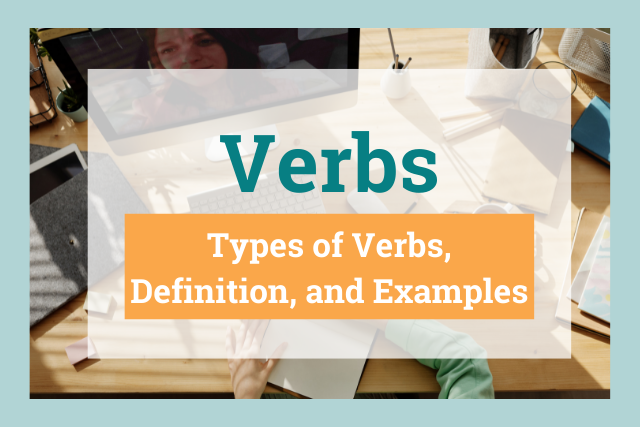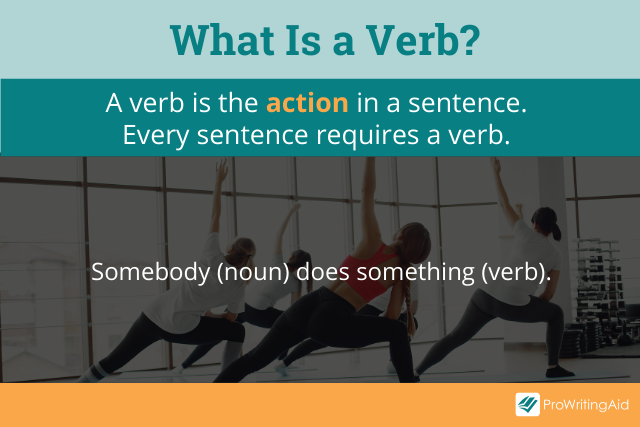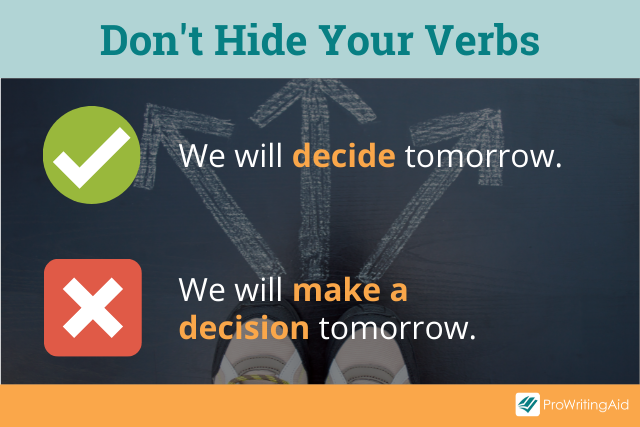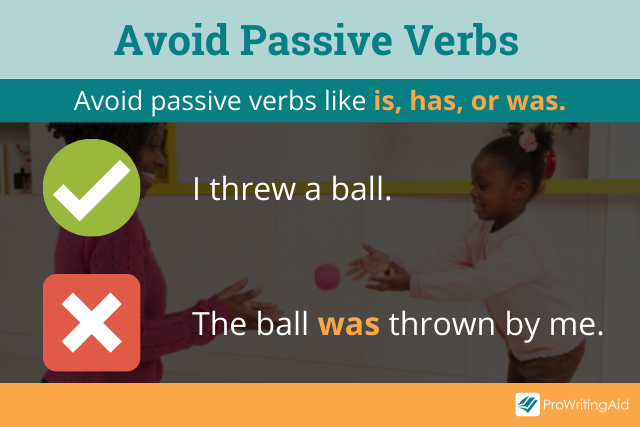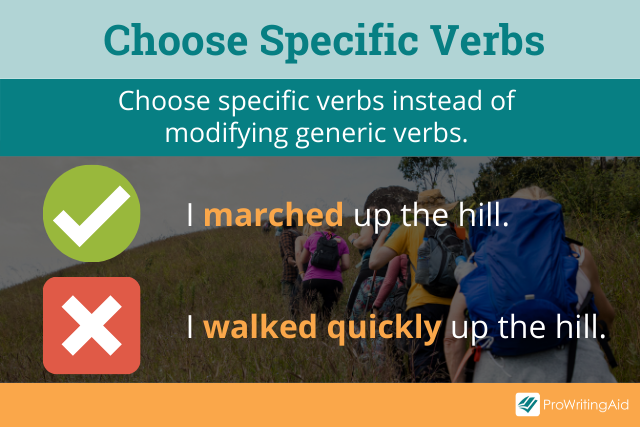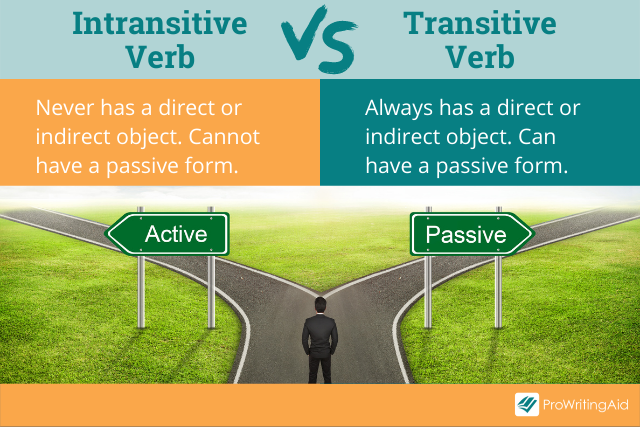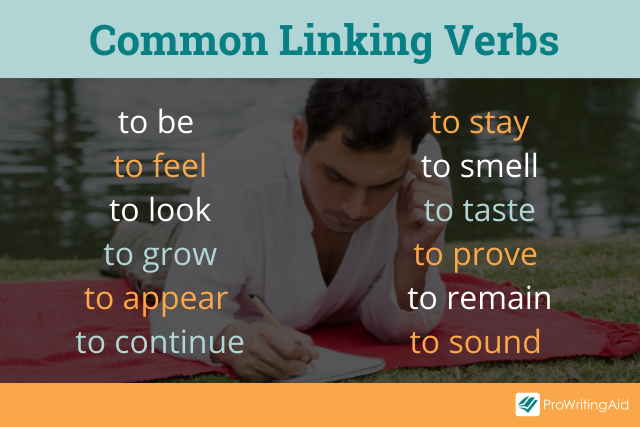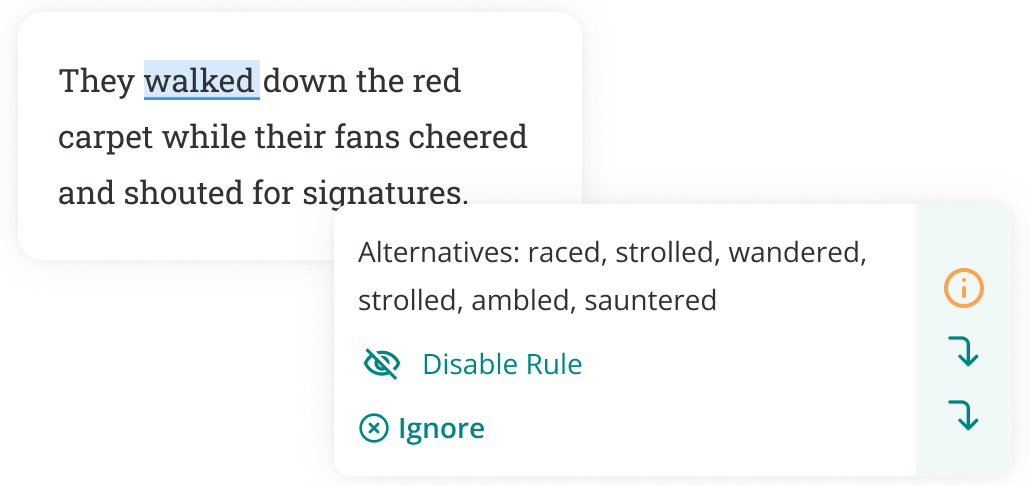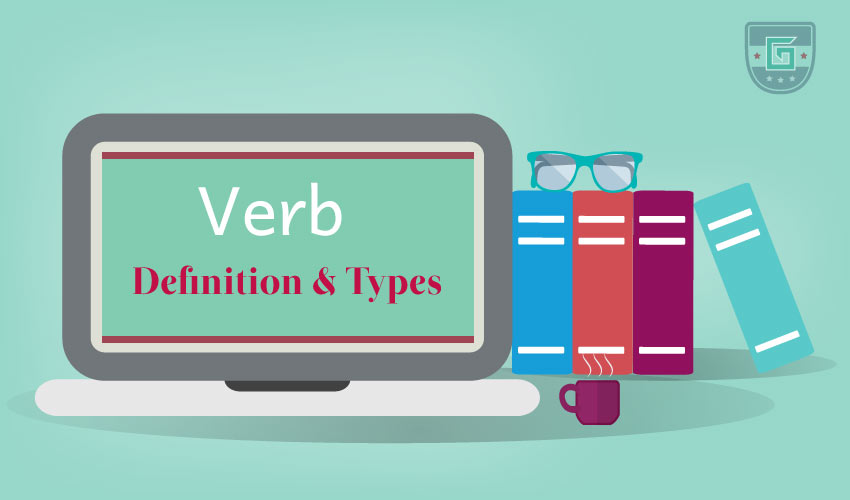Таблица неправильных глаголов
В английском языке глаголы делятся на правильные и неправильные. Неправильные глаголы — это такие глаголы, у которых форма прошедшего времени ( Past tense form ), а также форма причастия прошедшего времени ( Past participle ) образуется не так, как у правильных глаголов. Правильные глаголы образуют эти формы путём прибавления –ed к первой форме. Подробнее про глаголы.
Нет общего правила для неправильных глаголов. Их нужно просто выучить.
| Base form | Past simple | Past participle | Перевод |
|---|---|---|---|
| A | |||
| arise | arose | arisen | возникать, появляться |
| awake | awakened / awoke | awakened / awoken | будить, проснуться |
| B | |||
| backslide | backslid | backslidden / backslid | отказываться от прежних убеждений |
| be | was, were | been | быть |
| bear | bore | born / borne | родить |
| beat | beat | beaten / beat | бить |
| become | became | become | становиться, делаться |
| begin | began | begun | начинать |
| bend | bent | bent | сгибать, гнуть |
| bet | bet / betted | bet / betted | держать пари |
| bind | bound | bound | связать |
| bite | bit | bitten | кусать |
| bleed | bled | bled | кровоточить |
| blow | blew | blown | дуть |
| break | broke | broken | ломать |
| breed | bred | bred | выращивать |
| bring | brought | brought | приносить |
| broadcast | broadcast / broadcasted | broadcast / broadcasted | распространять, разбрасывать |
| browbeat | browbeat | browbeaten / browbeat | запугивать |
| build | built | built | строить |
| burn | burned / burnt | burned / burnt | гореть, жечь |
| burst | burst | burst | взрываться, прорываться |
| bust | busted / bust | busted / bust | разжаловать |
| buy | bought | bought | покупать |
| C | |||
| can | could | could | мочь, уметь |
| cast | cast | cast | бросить, кинуть, вышвырнуть |
| catch | caught | caught | ловить, хватать, успеть |
| choose | chose | chosen | выбирать |
| cling | clung | clung | цепляться, льнуть |
| clothe | clothed / clad | clothed / clad | одевать (кого-либо) |
| come | came | come | приходить |
| cost | cost | cost | стоить, обходиться (в какую-либо сумму) |
| creep | crept | crept | ползать |
| cut | cut | cut | резать, разрезать |
| D | |||
| deal | dealt | dealt | иметь дело |
| dig | dug | dug | копать |
| dive | dove / dived | dived | нырять, погружаться |
| do | did | done | делать, выполнять |
| draw | drew | drawn | рисовать, чертить |
| dream | dreamed / dreamt | dreamed / dreamt | грезить, мечтать |
| drink | drank | drunk | пить |
| drive | drove | driven | управлять (авто) |
| dwell | dwelt / dwelled | dwelt / dwelled | обитать, находиться |
| E | |||
| eat | ate | eaten | есть, кушать |
| F | |||
| fall | fell | fallen | падать |
| feed | fed | fed | кормить |
| feel | felt | felt | чувствовать |
| fight | fought | fought | драться, сражаться, бороться |
| find | found | found | находить |
| fit | fit | fit | подходить по размеру |
| flee | fled | fled | убегать, спасаться |
| fling | flung | flung | бросаться, ринуться |
| fly | flew | flown | летать |
| forbid | forbade | forbidden | запрещать |
| forecast | forecast | forecast | предсказывать, предвосхищать |
| foresee | foresaw | foreseen | предвидеть |
| foretell | foretold | foretold | предсказывать, прогнозировать |
| forget | forgot | forgotten | забывать |
| forgive | forgave | forgiven | прощать |
| forsake | forsook | forsaken | покидать |
| freeze | froze | frozen | замерзать |
| G | |||
| get | got | gotten / got | получать, достигать |
| give | gave | given | давать |
| go | went | gone | идти, ехать |
| grind | ground | ground | молоть, толочь |
| grow | grew | grown | расти |
| H | |||
| hang | hung / hanged | hung / hanged | вешать, развешивать |
| have, has | had | had | иметь |
| hear | heard | heard | слышать |
| hew | hewed | hewn / hewed | рубить |
| hide | hid | hidden | прятаться, скрываться |
| hit | hit | hit | ударять, поражать |
| hold | held | held | держать, удерживать, фиксировать |
| hurt | hurt | hurt | ранить, причинить боль |
| I | |||
| inlay | inlaid | inlaid | вкладывать, вставлять, выстилать |
| input | input / inputted | input / inputted | входить |
| interweave | interwove | interwoven | воткать |
| K | |||
| keep | kept | kept | держать, хранить |
| kneel | knelt / kneeled | knelt / kneeled | становиться на колени |
| knit | knitted / knit | knitted / knit | вязать |
| know | knew | known | знать, иметь представление (о чем-либо) |
| L | |||
| lay | laid | laid | класть, положить |
| lead | led | led | вести, руководить, управлять |
| lean | leaned / leant | leaned / leant | опираться, прислоняться |
| leap | leaped / leapt | leaped / leapt | прыгать, скакать |
| learn | learnt / learned | learnt / learned | учить |
| leave | left | left | покидать, оставлять |
| lend | lent | lent | одалживать, давать взаймы |
| let | let | let | позволять, предполагать |
| lie | lay | lain | лежать |
| light | lit / lighted | lit / lighted | освещать |
| lose | lost | lost | терять |
| M | |||
| make | made | made | делать, производить, создавать |
| may | might | might | мочь, иметь возможность |
| mean | meant | meant | значить, иметь ввиду |
| meet | met | met | встречать |
| miscast | miscast | miscast | неправильно распределять роли |
| misdeal | misdealt | misdealt | поступать неправильно |
| misdo | misdid | misdone | делать что-либо неправильно или небрежно |
| misgive | misgave | misgiven | внушать недоверия, опасения |
| mishear | misheard | misheard | ослышаться |
| mishit | mishit | mishit | промахнуться |
| mislay | mislaid | mislaid | класть не на место |
| mislead | misled | misled | ввести в заблуждение |
| misread | misread | misread | неправильно истолковывать |
| misspell | misspelled / misspelt | misspelled / misspelt | писать с ошибками |
| misspend | misspent | misspent | неразумно, зря тратить |
| mistake | mistook | mistaken | ошибаться |
| misunderstand | misunderstood | misunderstood | неправильно понимать |
| mow | mowed | mowed / mown | косить |
| O | |||
| offset | offset | offset | возмещать, вознаграждать, компенсировать |
| outbid | outbid | outbid | перебивать цену |
| outdo | outdid | outdone | превосходить |
| outfight | outfought | outfought | побеждать в бою |
| outgrow | outgrew | outgrown | вырастать из |
| output | output / outputted | output / outputted | выходить |
| outrun | outran | outrun | перегонять, опережать |
| outsell | outsold | outsold | продавать лучше или дороже |
| outshine | outshone | outshone | затмевать |
| overbid | overbid | overbid | повелевать |
| overcome | overcame | overcome | компенсировать |
| overdo | overdid | overdone | пережари(ва)ть |
| overdraw | overdrew | overdrawn | превышать |
| overeat | overate | overeaten | объедаться |
| overfly | overflew | overflown | перелетать |
| overhang | overhung | overhung | нависать |
| overhear | overheard | overheard | подслуш(ив)ать |
| overlay | overlaid | overlaid | покры(ва)ть |
| overpay | overpaid | overpaid | переплачивать |
| override | overrode | overridden | отменять, аннулировать |
| overrun | overran | overrun | переливаться через край |
| oversee | oversaw | overseen | надзирать за |
| overshoot | overshot | overshot | расстрелять |
| oversleep | overslept | overslept | проспать, заспаться |
| overtake | overtook | overtaken | догонять |
| overthrow | overthrew | overthrown | свергать |
| P | |||
| partake | partook | partaken | принимать участие |
| pay | paid | paid | платить |
| plead | pleaded / pled | pleaded / pled | обращаться к суду |
| prepay | prepaid | prepaid | платить вперед |
| prove | proved | proven / proved | доказывать |
| put | put | put | класть, ставить, размещать |
| Q | |||
| quit | quit / quitted | quit / quitted | выходить, покидать, оставлять |
| R | |||
| read | read | read | читать |
| rebind | rebound | rebound | перевязывать |
| rebuild | rebuilt | rebuilt | перестроить |
| recast | recast | recast | изменять, перестраивать |
| redo | redid | redone | делать вновь, переделывать |
| rehear | reheard | reheard | слушать вторично |
| remake | remade | remade | переделывать |
| rend | rent | rent | раздирать |
| repay | repaid | repaid | отдавать долг |
| rerun | reran | rerun | выполнять повторно |
| resell | resold | resold | перепродавать |
| reset | reset | reset | возвращать |
| resit | resat | resat | пересиживать |
| retake | retook | retaken | забирать |
| retell | retold | retold | пересказывать |
| rewrite | rewrote | rewritten | перезаписать |
| rid | rid | rid | избавлять |
| ride | rode | ridden | ездить верхом |
| ring | rang | rung | звонить |
| rise | rose | risen | подняться |
| run | ran | run | бегать |
| S | |||
| saw | sawed | sawed / sawn | пилить |
| say | said | said | сказать, заявить |
| see | saw | seen | видеть |
| seek | sought | sought | искать |
| sell | sold | sold | продавать |
| send | sent | sent | посылать |
| set | set | set | ставить, устанавливать |
| sew | sewed | sewn / sewed | шить |
| shake | shook | shaken | трясти |
| shave | shaved | shaved / shaven | бриться |
| shear | sheared | sheared / shorn | стричь |
| shed | shed | shed | проливать |
| shine | shined / shone | shined / shone | светить, сиять, озарять |
| shoot | shot | shot | стрелять, давать побеги |
| show | showed | shown / showed | показывать |
| shrink | shrank / shrunk | shrunk | сокращаться, сжиматься |
| shut | shut | shut | закрывать, запирать, затворять |
| sing | sang | sung | петь |
| sink | sank / sunk | sunk | тонуть, погружаться (под воду) |
| sit | sat | sat | сидеть |
| slay | slew / slayed | slain / slayed | убивать |
| sleep | slept | slept | спать |
| slide | slid | slid | скользить |
| sling | slung | slung | бросать, швырять |
| slink | slunk | slunk | красться, идти крадучись |
| slit | slit | slit | разрезать, рвать в длину |
| smell | smelled / smelt | smelled / smelt | пахнуть, нюхать |
| sow | sowed | sown / sowed | сеять |
| speak | spoke | spoken | говорить |
| speed | sped / speeded | sped / speeded | ускорять, спешить |
| spell | spelled / spelt | spelled / spelt | писать или читать по буквам |
| spend | spent | spent | тратить, расходовать |
| spill | spilled / spilt | spilled / spilt | проливать, разливать |
| spin | spun | spun | прясть |
| spit | spit / spat | spit / spat | плевать |
| split | split | split | расщеплять |
| spoil | spoiled / spoilt | spoiled / spoilt | портить |
| spread | spread | spread | распространиться |
| spring | sprang / sprung | sprung | вскочить, возникнуть |
| stand | stood | stood | стоять |
| steal | stole | stolen | воровать, красть |
| stick | stuck | stuck | уколоть, приклеить |
| sting | stung | stung | жалить |
| stink | stunk / stank | stunk | вонять |
| strew | strewed | strewn / strewed | усеять, устлать |
| stride | strode | stridden | шагать, наносить удар |
| strike | struck | struck | ударить, бить, бастовать |
| string | strung | strung | нанизать, натянуть |
| strive | strove / strived | striven / strived | стараться |
| sublet | sublet | sublet | передавать в субаренду |
| swear | swore | sworn | клясться, присягать |
| sweep | swept | swept | мести, подметать, сметать |
| swell | swelled | swollen / swelled | разбухать |
| swim | swam | swum | плавать, плыть |
| swing | swung | swung | качать, раскачивать, вертеть |
| T | |||
| take | took | taken | брать, взять |
| teach | taught | taught | учить, обучать |
| tear | tore | torn | рвать |
| tell | told | told | рассказать |
| think | thought | thought | думать |
| throw | threw | thrown | бросить |
| thrust | thrust | thrust | колоть, пронзать |
| tread | trod | trodden / trod | ступать |
| U | |||
| unbend | unbent | unbent | выпрямляться, разгибаться |
| underbid | underbid | underbid | снижать цену |
| undercut | undercut | undercut | сбивать цены |
| undergo | underwent | undergone | испытывать, переносить |
| underlie | underlay | underlain | лежать в основе |
| underpay | underpaid | underpaid | оплачивать слишком низко |
| undersell | undersold | undersold | продавать дешевле |
| understand | understood | understood | понимать, постигать |
| undertake | undertook | undertaken | предпринять |
| underwrite | underwrote | underwritten | подписываться |
| undo | undid | undone | уничтожать сделанное |
| unfreeze | unfroze | unfrozen | размораживать |
| unsay | unsaid | unsaid | брать назад свои слова |
| unwind | unwound | unwound | развертывать |
| uphold | upheld | upheld | поддерживать |
| upset | upset | upset | опрокинуться |
| W | |||
| wake | woke / waked | woken / waked | просыпаться |
| waylay | waylaid | waylaid | подстерегать |
| wear | wore | worn | носить (одежду) |
| weave | wove / weaved | woven / weaved | ткать |
| wed | wed / wedded | wed / wedded | жениться, выдавать замуж |
| weep | wept | wept | плакать, рыдать |
| wet | wet / wetted | wet / wetted | мочить, увлажнять |
| win | won | won | победить, выиграть |
| wind | wound | wound | заводить (механизм) |
| withdraw | withdrew | withdrawn | взять назад, отозвать |
| withhold | withheld | withheld | воздерживаться, отказывать |
| withstand | withstood | withstood | противостоять |
| wring | wrung | wrung | скрутить, сжимать |
| write | wrote | written | писать |
Gift as a verb has a 400-year history of use and means “to present someone with a gift.” Some feel strongly that give is the correct word, but gift-as-a-verb is an acceptable and efficient alternative. Since the 1990s the word has surged in popularity, perhaps in part because of a well-known Seinfeld episode concerning “regifting” and “degifting.”
Happy holidays! ‘Tis the season for gifting!
Ooh, sorry—did that use of the verb gift make you feel weird? Or perhaps fill you with an unearthly fury? We apologize, but we did it for your own good. You’re likely to keep hearing and seeing the verb gift in the coming weeks, and as your dictionary, we feel it is our duty to help make those encounters as pain-free as possible. If you’d like to be better equipped to cope with the onslaught of gift-as-a-verb incidences, read on.
Gift has been a verb for 400 years. It is real. It is not new.
Yes, Gift is a Verb
First things first: there are some among you who are asking, «Is the verb gift even a word?»
It’s a good question, and we have a good answer for you, which is, sorry, YES. Gift has been used to mean «to present someone with a gift» for 400 years.
To which you might well reply: «OK, fine, but do we really need it? What’s wrong with using plain, old, utilitarian give?»
And of course there’s nothing wrong with using give. It’s a great word, as is evidenced by the frequency with which we use it and the variety of meanings we’ve bestowed on it: in this very dictionary, the entry for give has 16 transitive senses and 5 intransitive senses, with multiple subsenses listed at the majority of those. But a word that has such frequent and varied use can also be ambiguous. Take the sentence «She gave me the book.» Without getting more information, we don’t know if the book was a gift or if she simply handed it to the speaker. But in «She gifted me the book» the meaning is instantly clear: the book was a gift.
Best Buy said they are looking for the gentleman in hopes to connect with him and gift him some items he wasn’t able to buy that night.
— Elenee Dao, KXLY, 6 Dec. 2019
All of this, however, is unlikely to stem the annoyance/disgust/fury of those who truly detest the use. Maybe having someone to blame (however unfairly) for the popularity of gift-as-a verb would help.
Recent Popularity
While it’s true that gift has meant «to present someone with a gift» for 400 years, the verb has never been so widely used as it is now. It’s impossible to say exactly why this is, but we may be able to place a smidgen of the blame on a certain comedian.
Maybe you’ve seen the rerun: in a Seinfeld episode from January 1995 Tim Whatley «regifts» a label maker that Elaine gives him, and then Jerry wants to «degift» some Super Bowl tickets that he gave Tim when he thought he couldn’t use them. Gift-as-a-verb in 1995 was already seeing an increase in use that seems to have begun in earnest around 1960, but that increase became especially dramatic in the second half of the 1990s. We can’t say for certain that the verbal use of regift and degift made people somehow more willing to treat gift as a verb, but if it makes you feel better to blame Jerry Seinfeld and his friends we won’t stop you. Perhaps you’ll even want to include Seinfeld scriptwriters among those who’ve wronged you as you indulge in the Airing of Grievances at your Festivus celebration.
Фразовый глагол Give – один из самых употребляемых наряду с take, put, look, break и get. Его сочетания на слуху у изучающих английский язык, но есть смысл обобщить их в одной статье. Приготовьтесь – их немало.
Give up — «сдаваться, бросать»
Most of the teachers gave up on her years ago.
She gave up smoking when she was 25.
Give away — «выдавать (секрет)»
Don’t give these data away or we’ll get the sack.
Give over — «переставать, бросать»
Give over making that noise!
Give over to — «посвящать (себя)»
She gave herself over completely to her work.
Give in — «уступать, сдаваться»
I couldn’t finish the crossword puzzle and had to give in and look at the answers.
Give out — «объявлять выдавать»
Details of the accident were given out on the nine o’clock news.
Give back — «отдавать»
Give me the keys back.
Give off — «производить, вырабатывать»
When they die, plants give off gases such as carbon dioxide and methane.
Give onto — «выходить, иметь вид на»
The roof gives onto the central lake.
In this post, Michael Ennis shares his ideas on teaching verbs for future intentions. One confusing aspect of English word order involves the two objects—indirect and direct—that follow certain verbs related to giving, lending, refusing (in the sense of “not giving”), and similar functions.
Some grammarians call these dative verbs from the Latin word dare, “to give.” Such verbs are essential in even the most basic conversations, but to use them correctly a speaker has to know whether a certain verb is followed by (1) a direct object plus a prepositional phrase with the receiver as its object, or (2) an indirect object and a direct object, but no preposition. Further, students must learn how the word order is affected if one or both objects is a pronoun.
For instance, consider the different word orders in the following examples, where the noun phrases in (parentheses) are direct objects and the noun phrases in {braces} are indirect objects:
He passed (his notes) to {a classmate}.
I lent {my friend} (my textbook).
Can you hand {me} down (that red book) on the shelf?
The teacher handed out (the tests) to {the students}.
My teacher gave {me} (an A)!
Our professor granted {us} (an extension).
Direct vs. Indirect
Your students must first understand the difference between a direct object and an indirect object, at least implicitly. If a sentence has both kinds of object, the direct object is the noun or pronoun that refers to the thing that is being given, while the indirect object is the noun or pronoun that refers to the entity that is receiving it. Alternatively, a sentence may express the receiver as the object of the preposition to.
Inconveniently, the word order after verbs of giving is determined by each verb itself. Verb X takes Pattern Y just as a matter of convention, not because of any rule. To master such an unpredictable system, a student needs frequent exposure to and practice with the most important verbs. I have also found that if you are teaching deductively, it is often better not to confuse your students with too many grammar terms or concepts.
Start your treatment of this topic with familiar verbs, like give and hand out (before gradually expanding input with more examples). Sentences with give and hand out represent the two sentence patterns we are targeting. The easiest way to teach this at first is to break things up into two categories of verbs that follow two possible patterns.
Patterns and Categories:
The two patterns are:
- The prepositional pattern: verb + direct object + prepositional phrase (preposition + object of preposition);
- The double-object pattern: verb + indirect object + direct object.
The two categories are:
- Verbs that almost always follow the prepositional pattern, such as hand out, hand over, give away, give out, turn in, turn over, pass out, contribute, donate, distribute, disburse, dispense, submit, consign, relinquish, surrender, and forfeit;
- Verbs that often also follow the double-object pattern, such as give, grant, lend, present, hand, pass, deal, provide, send, deliver, gift, bequeath, award, transfer, and transmit.
Since all of the “giving” verbs we’ve mentioned can follow the prepositional pattern, I recommend building upon that structure. Then explain that the double object is an option available for a subset of these verbs.
A useful tip
A useful tip is that this double-object option is not usually seen with phrasal verbs, which tend to follow only the prepositional pattern. However, when working with the phrasal verbs for giving, you may need to review particle movements, especially with pronominal direct objects, as in the examples below.
The billionaire gave away (his money) to {charities}.
The billionaire gave (his money) away to {charities}.
The billionaire gave (it) away to {charities}.
* The billionaire gave away (it) to {charities}.
Something else to introduce relatively soon is how the use of pronouns restricts the use of double objects. Essentially, if the direct object is a pronoun but the indirect object is not, then the double-object pattern is usually not an option, as illustrated by the following examples.
He passed (his notes) to {a classmate}.
He passed (his notes) to {her}.
He passed (them) to {a classmate}.
He passed (them) to {her}.
He passed {a classmate} (his notes).
He passed {her} (his notes).
* He passed {a classmate} (them). (not grammatical)
? He passed {her} (them). (of questionable grammaticality)
The conventions of when the double-object pattern is used are somewhat subjective. For instance, the construction “he passed her them”, though perhaps not “incorrect”, sounds awkward to me. Yet I can imagine many contexts in which “he passed her those” sounds perfectly fine to my ears.
The next steps
As your students get more comfortable with these patterns, you can expand the two categories of verbs and introduce new exceptions and restrictions. For instance, all of the “giving” verbs listed above take the preposition to. However, others with very similar meanings take the prepositions for or upon (e.g., purchase, bought, acquire, confer, and bestow). While some verbs are restricted to the prepositional pattern, others cannot take a preposition at all and therefore only follow the double-object pattern (e.g., allow or permit), including verbs that imply “not giving” (e.g., deny or refuse). And then there are giving verbs which take the receiver as their direct object but require the preposition with in order to specify whatever is being given (e.g., endow, equip, furnish, and provide).
Given all the possibilities, it might also be wise to train your students to use a dictionary or free corpus to explore which prepositions and which pattern(s) a new “giving” verb takes in different communicative and linguistic contexts.
So, as you can see, you can continue to revisit “giving” verbs at almost any point in an English class at almost any level!
Use this downloadable worksheet to give your students extra practice with “giving” verbs.
Subscribe to the monthly Grammar Teaching Newsletter with teaching tips and classroom activities from grammar experts, and read more grammar blogs.
Personally, I find ‘gifted’ perfectly fine and a good option, though I do find other forms such as gifting to be awkward.
However, someone mentioned that although it has been in used since the 16th/17th century, it could have been invented by someone unlearned in the language. This is a rather invalid assumption. First and foremost, colonisation of America only begain in 17th century. Colonisation of other regions, such as Africa and Asia, would be much late, mostly in the 19th century. Furthermore, English only became a universal language in the 20th century. Prior to that, most commoners only knew their own language, with the European nobility also learning French, the universal language amongst European nobility then. Non-natives who knew English would mostly have been royalty or a small population of nobles who had an interest in the subject, or were harsh on themselves. I highly doubt they would have embarrassed themselves by using imperfect English before they perfected it.
To be fair, an english word, with usage from the 16th/17th century, and still used today, would be quite an old word, since prior to that, up to the 15th century, English was in the state of Old English or later Middle English, both of which are rather different to the English we know today. 16th/17th century would be Early Modern English, which was what Shakespeare himself would have learnt and used.
As for what connotation it has as compared to give, when one gives something to another, it is unclear if one is giving the thing as a present, or simply passing it, while gift, as a verb, would be more precise.
Think of all the actions you can perform. You can walk, run, and dance. You can speak, read, and write.
All of these are verbs—words that tell us what the subject of a sentence is doing.
Verbs are one of the most important parts of speech. In fact, they’re the only word that every complete sentence needs to include.
You can build a grammatically complete sentence without any nouns or adjectives, but no matter what, you need a verb.
If you want your writing to be clear and effective, you need to understand the different types of verbs and how they work.
This article will give you a complete guide to verbs to help you improve your writing.
What Is a Verb: A Simple Explanation
A verb is a word that denotes action or a state of being.
As a part of speech in grammar, a verb is the action in the sentence. Along with a noun, the verb is a critical component of a complete sentence. Somebody (noun) does something (verb).
In grammar, the doer is the subject, and the action is the predicate (the part of the sentence containing the verb and describing the subject).
Those two elements form a complete sentence: “Jim grins.”
You may want more information in your sentence, like an object: “Jim grins at Sally.”
You may add subordinate clauses: “Jim grins at Sally when she fumbles the ball.”
However complex your sentence, the verb is the action. It tells you what the subject is doing, feeling, or being.
How to Use Verbs in Writing
You use verbs every day when you talk and write. Because verbs denote action, they move every story forward.
In writing, your verb choice delivers a punch to your prose.
Using the right verb also increases readability for your audience because you don’t need to lengthen the sentence by describing the action with extra modifiers. The verb does all the work.
Here are our three favorite tips for how to use verbs well in your writing.
Tip #1: Don’t Hide Your Verbs
Many writers unintentionally hide their verbs by turning them into nouns accompanied by a weak verb.
Take these two sentences:
- «We will decide tomorrow.”
- “We will make a decision tomorrow.”
The first sentence is shorter and more direct. In the second sentence, the strong verb decide is changed into the weaker make, which dilutes the meaning.
How can you spot hidden verbs? Look for words ending in -ment, -tion, -sion, and -ance.
Also, if you’ve used weak verbs like give, have, make, reach, and take, this could be a sign of a hidden verb.
Reading through your whole document to find weak verbs takes time. ProWritingAid automatically highlights your hidden verbs so you can change them with a single click.
Tip #2: Avoid Passive Verbs
You could say “The ball was thrown by me” or “I threw the ball,” and both sentences mean the same thing.
However, it’s normally better to convey action and grab your reader’s attention, rather than using passive verbs like is, has, and was.
Rewording your sentences to favor active verbs instead of passive verbs will strengthen your writing.
For example, you can use a verb instead of an adjective:
- Original Sentence: He is asleep under the tree.
- Improved Sentence: He sleeps under the tree.
The verb sleeps is more powerful than the passive version is asleep.
Similarly, you can use a verb instead of a noun:
- Original Sentence: She was a good writer.
- Improved Sentence: She wrote well.
Once again, the verb wrote is more powerful than the passive version was a writer, because it conveys movement and action.
Letting active verbs do the heavy lifting in your sentence will help you convey your point in a strong and concise way.
Tip #3: Choose Specific Verbs Instead of Modifying Weak Verbs
Some verbs in the English language are more descriptive and precise than others.
For example, the word whispered conveys more information than the word said, because it implies adverbs like quietly or furtively.
Similarly, the verb sprint conveys more information than move, because it tells the reader the specific type of movement being described.
There’s nothing wrong with using a generic verb like said, but if you want to provide more information, it’s almost always better to use a specific verb instead of modifying a weak verb.
Sometimes, this rule means replacing a generic verb and its adverb with a stronger, more specific verb. Consider the following example:
Original Sentence: She walked slowly up the stairs.
Improved Sentence: She trudged up the stairs.
Trudged is more concise and evocative than walked slowly.
Other times, this rule can also mean replacing a generic verb and a modifying phrase with a stronger verb.
- Original Sentence: He smiled in a mean way at the new kid in class.
- Improved Sentence: He sneered at the new kid in class.
Sneered is a more interesting way to say smiled in a mean way and will make your writing more powerful.
Keep in mind it’s okay to use phrasal verbs, which are verbs that consist of multiple words, such as break down and let go.
There’s a difference between using a phrasal verb and modifying a generic verb.
Choosing the right verb can help you say a lot more with fewer words.
Types of Verbs
There are three main types of verbs. Familiarity with verb types will help you understand when to use each type and when to avoid a verb type.
The three verb types are:
- Action verbs (which can be transitive or intransitive)
- Modal or helping verbs
- Linking verbs
Let’s take a closer look at each of these verb types and how they function in a sentence.
Action Verb: Definition & Examples
When a person or thing is doing something, that’s an action verb.
Action verbs are the best ones to use in your writing to move your story forward and create tension.
Action verbs can also clarify articles and papers by indicating direct action.
Action verbs are split into two categories: transitive verbs and intransitive verbs.
1) Transitive Verbs
A transitive verb is always followed by a noun that receives the action, called the direct object.
Consider the sentence “I patted my dog’s head.”
The transitive verb is “patted,” and the noun that’s receiving this action is “my dog’s head,” which is the direct object of the action verb.
Sometimes an object can be indirect, such as when you’re expressing to whom the action is being done.
Consider the sentence “Mary gave Angelina a kiss on the cheek.”
The verb is “gave,” and the direct object was “a kiss.” To whom it happened was Angelina, the indirect object of the sentence.
Transitive verbs act on direct and indirect objects. Something or someone always gets affected by this type of verb.
2) Intransitive Verbs
When an action verb has no direct object, it’s called an intransitive verb. An adverb or adverb phrase can follow intransitive verbs, but there will not be a direct object.
Consider the sentence “Matthew runs away quickly.”
The verb is runs, and the phrase “away quickly” tells us more about the verb, but there is no object in the sentence to receive the action. Therefore, runs is an intransitive verb.
An easy way to tell the difference between a transitive and an intransitive verb is to ask the question, “Who or what is receiving the action from this verb?”
- If you can name a noun that’s on the receiving end, it’s a transitive verb.
- If you can’t name a noun, whether a direct or indirect object, then the verb is intransitive.
Either way, transitive or intransitive, active verbs lend immediacy to your sentence, drawing in the reader.
Auxiliary Verb: Definition & Examples
An auxiliary verb, also called a helping verb, modifies the action in the main verb.
Auxiliary verbs help readers to understand the main verb. They typically change the mood or tense of the main verb.
Auxiliary verbs provide hints related to the possibility of something happening (can, should, would, etc.) or time (has, did, was, etc.).
When you add auxiliary verbs to your sentence, you create verb phrases.
Auxiliary verb examples:
- Laura is (helping verb) writing (main action verb) her life story.
- Her story might (helping verb) be (main verb) embarrassing for some of her friends.
The following verbs always function as auxiliary verbs or helping verbs:
- Can
- Could
- May
- Might
- Must
- Ought to
- Shall
- Should
- Will
- Would
In addition, you can have auxiliary verbs comprising the forms of to be, to do, and to have.
Keep in mind that the following words can also serve as linking verbs (which we’ll discuss next):
- Am
- Are
- Be
- Been
- Being
- Did
- Do
- Does
- Had
- Has
- Have
- Is
- Was
- Were
Examples of be, do, have helping verbs in sentences:
- Juliet is changing trains at the station.
- Daniel had eaten everything on his plate.
- Every cyclist does dismount at the crossing.
Linking Verb: Definition & Examples
A linking verb connects the subject of your sentence to a noun or adjective that describes your subject. The noun or adjective is called the “subject complement.”
Here are some examples:
- My daughter is a marketing major.
- We are your new neighbors.
The most common linking verb can be found in the various forms of to be (am, are, is, was, were, etc.). These are also called stative verbs, because they describe a state of being.
To become and to seem are always linking verbs. The following verbs, however, can sometimes be linking verbs and other times be action verbs:
- To appear
- To continue
- To feel
- To grow
- To look
- To prove
- To remain
- To sound
- To stay
- To smell
- To taste
- To turn
Here is an example of the difference between a linking verb and an action verb.
Linking: The seafood smelled off. (The linking verb smelled links seafood to off)
Action: I smelled the seafood before eating. (The action verb refers to the action of smelling)
Why Are Verbs Important?
Verbs are action words that engage your reader and help them picture what’s happening in your writing.
Choosing the right verb can elicit an emotional response, whether you’re writing academic essays or narrative fiction.
Verbs in Academic Writing
Academic writing tends to stick to more formal writing styles than fiction writing, but you still want to keep your reader’s interest and communicate your points clearly.
Whether you’re a student writing essays for class, or a professional researcher trying to publish a paper, using strong action verbs will improve your academic writing.
Look for weak verbs in your writing and try to replace them with precise and dynamic verbs.
Consider the following examples of verb choices in academic writing.
- Original Sentence: “A recent psychological study makes it clear that children are more likely to respond to positive reinforcement than negative reinforcement.”
-
Improved Sentence: “A recent psychological study demonstrates that children are more likely to respond to positive reinforcement than negative reinforcement.”
-
Original Sentence: “This result is an example of how a single night of sleep loss can have long-term impacts on the brain.”
-
Improved Sentence: “This result illustrates how a single night of sleep loss can have long-term impacts on the brain.”
-
Original Sentence: “Her findings are in agreement with the conclusions I’ve presented in this paper.”
- Improved Sentence: “Her findings support the conclusions I’ve presented in this paper.”
If you are new to thinking about verb use, here’s a list of 100 strong English verbs you can use to improve your essays, papers, and articles:
- Admit
- Advocate
- Affirm
- Allude
- Analyze
- Argue
- Assert
- Assess
- Believe
- Caution
- Challenge
- Clarify
- Concede
- Conclude
- Condone
- Confirm
- Consider
- Contemplate
- Contend
- Convey
- Corroborate
- Declare
- Demonstrate
- Denote
- Deny
- Depict
- Derive
- Describe
- Determine
- Discuss
- Dismiss
- Display
- Dispute
- Disregard
- Dissect
- Document
- Emphasize
- Endorse
- Entail
- Establish
- Evaluate
- Examine
- Explore
- Generate
- Highlight
- Hint
- Hypothesize
- Identify
- Ignite
- Ignore
- Illustrate
- Impact
- Imply
- Indicate
- Infer
- Influence
- Inhibit
- Initiate
- Instigate
- Interpret
- Introduce
- Invalidate
- Maintain
- Misconstrue
- Negate
- Observe
- Perceive
- Portray
- Postulate
- Presume
- Promote
- Propose
- Provoke
- Question
- Recognize
- Recommend
- Refer
- Refute
- Reject
- Represent
- Reveal
- Scrutinize
- Signify
- Speculate
- Stimulate
- Substantiate
- Suggest
- Support
- Surface
- Surmise
- Theorize
- Trigger
- Typify
- Uphold
- Underscore
- Unearth
- Utilize
- Validate
- Verify
- Yield
Verbs in Fiction Writing
Fiction writers use verbs with exactitude to prompt reader engagement, thereby sparking emotions and a desire to keep reading.
Dull verbs make for lackluster reading. Finding the right verb for your character’s action brings your story to life.
You might have heard the classic writing advice “Show, don’t tell.” Using strong verbs is a great way to show the reader what’s happening clearly and concisely.
Consider the following examples of verb choice in fiction writing.
- Original Sentence: “Her long skirt was blown outward as she fell through the air.”
- Improved Sentence: “Her long skirt ballooned outward as she fell through the air.”
- Original Sentence: “The sound of his father’s last words was still running through his mind.”
- Improved Sentence: “The sound of his father’s last words reverberated through his mind.”
- Original Sentence: “The man in the black hat walked into the room.”
- Improved Sentence: “The man in the black hat charged into the room.”
If you want a good starting point for stronger verbs to use, here’s a list of 100 strong verbs in English that you can use for fiction writing:
- Absorb
- Alter
- Amplify
- Balloon
- Bash
- Blast
- Brood
- Burst
- Capture
- Charge
- Clasp
- Climb
- Clutch
- Collide
- Cower
- Crash
- Dangle
- Dash
- Demolish
- Detect
- Devour
- Dismantle
- Drag
- Drip
- Eavesdrop
- Engage
- Engulf
- Enlarge
- Ensnare
- Envelop
- Erase
- Expand
- Explore
- Fling
- Garble
- Gaze
- Glare
- Gleam
- Glisten
- Glitter
- Grasp
- Groan
- Growl
- Gush
- Hail
- Hover
- Ignite
- Illuminate
- Intertwine
- Jostle
- Lash
- Leap
- Lurch
- Magnify
- Mimic
- Mystify
- Notice
- Obtain
- Peek
- Peer
- Pinpoint
- Plant
- Pluck
- Plunge
- Prickle
- Recite
- Refine
- Retreat
- Reveal
- Reverberate
- Revolve
- Saunter
- Scamper
- Scrape
- Scrawl
- Shatter
- Shepherd
- Shimmer
- Shrivel
- Skulk
- Slink
- Slump
- Slurp
- Snarl
- Snowball
- Sprinkle
- Strain
- Swell
- Transform
- Trim
- Trudge
- Uncover
- Untangle
- Usher
- Veil
- Weave
- Wind
- Wrestle
- Yank
Using ProWritingAid to Strengthen Your Verbs
It’s easy to skip over weak verbs in your writing when you’re self-editing.
But, taking time to focus directly on your verbs helps ensure you’re always using the best word for your sentence.
ProWritingAid’s Thesaurus Report highlights all the verbs in your writing so you can get an overview of the strength and specificity of your word choices throughout your document.
Hover over a verb to see synonyms and click to replace weak verbs in your text with more powerful alternatives.
Conclusion on Verbs
There you have it: our complete guide to verbs.
Here’s a quick recap of everything we’ve discussed.
Increase the power of your writing by following these three tips:
- Don’t hide your verbs
- Avoid passive verbs
- Choose specific verbs instead of modifying weak verbs
The three verb types are:
-
Action verbs (such as run, jump, and dance)
-
Modal or helping verbs (such as can, was, and has)
-
Linking verbs (such as to look, to feel, and to taste)
Whether you’re writing fiction or non-fiction, specific verbs spark emotions in your readers and keep them engrossed in your writing.
We hope this article helps you choose strong verbs to create powerful, professional prose.
Take your writing to the next level:
20 Editing Tips From Professional Writers
Whether you are writing a novel, essay, article, or email, good writing is an essential part of communicating your ideas.
This guide contains the 20 most important writing tips and techniques from a wide range of professional writers.
A verb is a word or a combination of words that indicates action or a state of being or condition. A verb is the part of a sentence that tells us what the subject performs. Verbs are the hearts of English sentences.
Examples:
- Jacob walks in the morning. (A usual action)
- Mike is going to school. (A condition of action)
- Albert does not like to walk. (A negative action)
- Anna is a good girl. (A state of being)
Verbs are related to a lot of other factors like the subject, person, number, tense, mood, voice, etc.
Basic Forms of Verbs
There are six basic forms of verbs. These forms are as follows:
- Base form: Children play in the field.
- Infinitive: Tell them not to play
- Past tense: They played football yesterday.
- Past participle: I have eaten a burger.
- Present participle: I saw them playing with him today.
- Gerund: Swimming is the best exercise.
Different Types of Verbs
- Main/Base Verb
- Regular/Weak Verb
- Irregular/Strong Verb
- Transitive Verb
- Intransitive Verb
- Weak Verb
- Strong Verb
- Finite Verbs
- Non-finite Verbs
- Action Verbs
- Linking Verb
- Auxiliary Verbs
- Modal Verbs
- Reflexive Verb
- Ergative Verb
- Phrasal Verb
- Lexical Verb
- Delexical Verb
- Stative/Being Verb
- Dynamic Verb
- Non-continuous Verb
- Participle
- Gerund
- Infinitive
Base Verb
The base verb is the form of a verb where it has no ending (-ing, -ed, -en) added to it. It is also called the Root Verb since it is the very root form of a verb.
Examples:
- I go to school every day.
- You run a mile every morning.
- Do your homework.
Regular Verb
The Verbs that follow the most usual conjugations are considered Regular Verbs. It is regular since it abides by most if not all of the regular grammar rules there are.
Examples:
- Rehan plays cricket.
- Tam called out my name.
- You really walked all the way back?
Irregular Verb
The Verbs that have irregularities in terms of following grammar rules are Irregular Verbs, in general.
Examples:
- Do the dishes.
- I hardly ever drink enough water in a day.
- She drove all the way back.
Transitive Verb
The Main Verb that takes a direct object sitting right after it would be a Transitive Verb. They usually construct the most straightforward of sentences.
Examples:
- She went to the fair.
- We do not like being called out loud in crowds.
- I love visiting my village home.
Intransitive Verb
The main Verb that does not take a direct object specified right afterward and rather there is an indirect one mentioned somewhere along the line is called an Intransitive Verb. These verbs often make the corresponding sentences incomplete.
Example:
- I laughed.
- John ran.
- A ghast of cold wind blew.
Weak Verb
Verbs that end with “-d” and “-t” in their Past Indefinite and Past Participle form are Weak Verbs. There is a tendency to associate Weak Verbs with Regular Verbs but not all Weak Verbs are Regular Verbs in the English language.
Examples:
| Present Indefinite | Past Indefinite |
| Spend | Spent |
| Walk | Walked |
| Book | Booked |
| Learn | Learnt |
| Want | Wanted |
Strong Verb
Strong Verbs are those in which the vowels in the verb stem changes from “i” to “a” to “u” in the Present Indefinite to Past Indefinite to Past Participle form of Verbs.
Examples:
|
Present Indefinite |
Past Indefinite |
Past Participle |
|
Ring |
Rang |
Rung |
|
Drink |
Drank |
Drunk |
|
Cling |
Clang |
Clung |
|
Swim |
Swam |
Swum |
|
Sing |
Sang |
Sung |
|
Wring |
Wrang |
Wrung |
Finite Verbs
Finite verbs are the actual verbs that are called the roots of sentences. It is a form of a verb that is performed by or refers to a subject and uses one of the twelve forms of tense and changes according to the number/person of the subject.
Example:
- Alex went to school. (Subject – Alex – performed the action in the past. This information is evident only by the verb ‘went’.)
- Robert plays hockey.
- He is playing for Australia.
- He is one of the best players. (Here, the verb ‘is’ directly refers to the subject itself.)
Non-finite Verbs
Non-finite Verbs are not actual verbs. They do not work as verbs in the sentence rather they work as nouns, adjectives, adverbs, etc. Non-finite verbs do not change according to the number/person of the subject because these verbs, also called verbals, do not have any direct relation to the subject. Sometimes they become the subject themselves.
The forms of non-finite verbs are – infinitive, gerund, and participle (participles become finite verbs when they take auxiliary verbs.)
Example:
- Alex went abroad to play (Infinitives)
- Playing cricket is his only job. (Present participle)
- I have a broken bat. (Past participle)
- Walking is a good habit. (Gerund)
Action Verbs
Action verbs indicate what the subject of a sentence performs. Action verbs can make the listener/reader feel emotions, see scenes more vividly and accurately.
Action verbs can be transitive or intransitive.
Transitive verbs must have a direct object. A transitive verb demands something/someone to be acted upon.
Example:
- I painted the car. (The verb ‘paint’ demands an object to be painted)
- She is reading the newspaper. (The verb ‘read’ asks the question “what is she reading?” – the answer is the object)
Intransitive verbs do not act upon anything. They may be followed by an adjective, adverb, preposition, or another part of speech.
Example:
- She smiled. (The verb ‘smile’ cannot have any object since the action of ‘smiling’ does not fall upon anything/anyone)
- I wake up at 6 AM. (No object is needed for this verb)
Note: {Subject + Intransitive verb} is sufficient to make a complete sentence but {Subject + Transitive verb} is not sufficient because transitive verbs demand a direct object.
Linking Verb
A linking verb adds details about the subject of a sentence. In its simplest form, it connects the subject and the complement — that is, the words that follow the linking verb. It creates a link between them instead of showing action.
Often, what is on each side of a linking verb is equivalent; the complement redefines or restates the subject.
Generally, linking verbs are called ‘be’ verbs which are — am, is, are, was, were. However, there are some other verbs that can work as linking verbs. Those verbs are:
Act, feel, remain, appear, become, seem, smell, sound, grow, look, prove, stay, taste, turn.
Some verbs in this list can also be action verbs. To figure out if they are linking verbs, you should try replacing them with forms of the be verbs. If the changed sentence makes sense, that verb is a linking verb.
Example:
- She appears ready for the game. (She is ready for the game.)
- The food seemed delicious. (The food was delicious.)
- You look happy. (You are happy.)
Auxiliary Verbs
Auxiliary verbs are also called helping verbs. An auxiliary verb extends the main verb by helping to show time, tense, and possibility. The auxiliary verbs are – be verbs, have, and do.
They are used in the continuous (progressive) and perfect tenses.
Linking verbs work as main verbs in the sentence, but auxiliary verbs help main verbs.
Do is an auxiliary verb that is used to ask questions, to express negation, to provide emphasis, and more.
Example:
- Alex is going to school.
- They are walking in the park.
- I have seen a movie.
- Do you drink tea?
- Don’t waste your time.
- Please, do submit your assignments.
Modal Verbs
A modal verb is a kind of auxiliary verb. It assists the main verb to indicate possibility, potentiality, ability, permission, expectation, and obligation.
The modal verbs are can, could, must, may, might, ought to, shall, should, will, would.
Example:
- I may want to talk to you again.
- They must play their best game to win.
- She should call him.
- I will go there.
Reflexive Verb
When the Subject and the Object are the same and the Verb reflects on the Subject, that is the Reflexive Verb. These Verbs are often used with Reflexive Pronouns like — myself, himself, herself, itself etc.
Examples:
- He has done it himself.
- I’ll watch it myself.
Ergative Verb
Ergative Verbs can be used as Transitive and Intransitive Verb. They are also called Labile Verb in English.
Examples:
|
Intransitive Verbs |
Transitive Verbs |
|
The door opens. |
I opened the door. |
|
The bell rang. |
She rang the bell. |
|
The light is fused. |
They fused the lights. |
|
The whistle blew. |
Tom blew the whistle. |
Phrasal Verb
An idiomatic phrase consisting of a Verb and another element, most likely an Adverb or a Preposition is called a Phrasal Verb.
Examples:
- She broke down in tears.
- Don’t look down upon the poor.
- I’ll see to it.
Lexical Verb
Lexical Verb is the main or principal verb of a sentence which typically takes the major responsibility of a Verb that represents the action of the Noun or Pronoun.
Examples:
- He ran to his father.
- I laughed out loud.
- Rina tried her best.
DE-Lexical Verb
Delexical Verbs lack importance when it comes to meaning since these Verbs hardly have meanings of their own when used individually. The meaning is taken out of the Verbs and put into the Noun. Take, have, make, give etc. are Delexical Verbs.
Examples:
- He took a shower.
- I had a cold drink.
- She made some arrangements.
Stative Verb
The Verbs that describe the state of being are called Stative or Being Verbs.
Examples:
- I need some boxes.
- You belong to the pomp and power.
- He smells danger.
- They remember what happened that day.
Dynamic Verb
The Verbs that entail continuous or progressive action of the Subject are called Dynamic or Fientive Verbs. They express the Subject’s state of being on the move.
Examples:
- He’s running fast.
- Keep hitting the ball hard.
- The dog goes for a walk every afternoon.
Non-continuous Verb
The Verbs that are usually never used in their continuous forms are called Non-continuous Verbs.
Examples:
|
I like to swim. |
I’m liking to swim. |
|
I love to do the chords. |
I’m loving to do the chords. |
|
He does not hate you. |
He’s hating you. |
|
She just feels a bit dizzy, no need to worry. |
She’s just feeling a bit dizzy. |
Intensive Verb
The Verbs that focus intensely on just the Subject are called Intensive Verbs. Intensive Verbs are also called Linking or Copular Verbs.
Examples:
- You seem happy.
- It appears to be just perfect.
- She looks stunning.
- He’s become rather irritable.
Extensive Verb
All the Verbs that do not focus intensively on just the Subject (as the Intensive Verbs) of the sentence are Extensive Verbs.
Examples:
- He loves her.
- She runs too fast.
- Ron sells fish.
Participle
A participle is a Verb form where they retain some of the characteristics and functions of both Verbs and adopt those of the Adjectives.
Examples:
Present Participle (Verb + -ing)
- Have I become a laughing stock?
- Cycling is a well-rounded exercise.
Past Participle
- I have taken a hint.
- Have you given it enough thought?
Perfect Participle (Having + Past Participle)
- Having said that, I was quite worried.
- Having stepped out of my comfort zone, I saw a whole new world.
Gerund
The Verbs having -ing endings that function like Nouns in sentences are called Gerunds.
Examples:
- Smoking is injurious to health.
- Walking is good for health.
- I love swimming.
Infinitive
The ‘to + Verb’ forms where the Verbs are at their base or stem forms while they function as Nouns, Adjectives or Adverbs instead of Verbs.
Examples:
- I wanted to help you out.
- Are you trying to go there?
- I just love to flaunt my new Ferarri.



